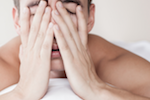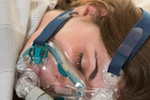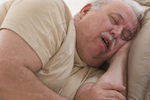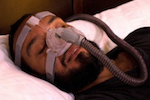
Sleep and sleep disturbances are increasingly recognized as determinants of women’s health and well-being, particularly in the context of the menstrual cycle, pregnancy, and menopause.

Sleep and sleep disturbances are increasingly recognized as determinants of women’s health and well-being, particularly in the context of the menstrual cycle, pregnancy, and menopause.

If you suffer from sleep apnea or a sleeping disorder, what you eat can help ease – or exacerbate – your condition.

Travel season is near and we understand how important it is not to miss a single night of your sleep therapy.

Early diagnosis is important to control risk of heart disease, stroke, depression and death.

Snoring • Frequent breaks or pauses in breathing • You’re tired all the time • You frequently wake with headaches • You have high blood pressure • You are overweight or obese • You are often irritable • Depressed • Experience mood swings.

Continuous positive airway pressure (CPAP) may be a more effective treatment than laparoscopic gastric banding (LGB) for control of severe obstructive sleep apnea (OSA).

Previously we discussed how not all patients with sleep apnea fit the typical profile of someone suffering from the sleep disorder. The notion that mostly middle aged, overweight men are the ones likely to develop sleep apnea is a misconception that often leads to misdiagnosis in atypical patients with sleep apnea.

There are clear connections between sleep apnea and other diseases
such as diabetes and heart disease that are improved with weight
loss.

This meta-analysis shows a statistically significant effect of exercise in reducing the severity of
sleep apnea in patients with OSA with minimal changes in body weight. Additionally, the
significant effects of exercise on cardiorespiratory fitness, daytime sleepiness, and sleep
efficiency indicate the potential value of exercise in the management of OSA.

Recent research into obstructive sleep apnea (OSA) has uncovered some surprises regarding sleep and the male libido. There exists a relationship between hormones and OSA: men who sleep poorly tend to also have low levels of the testosterone.